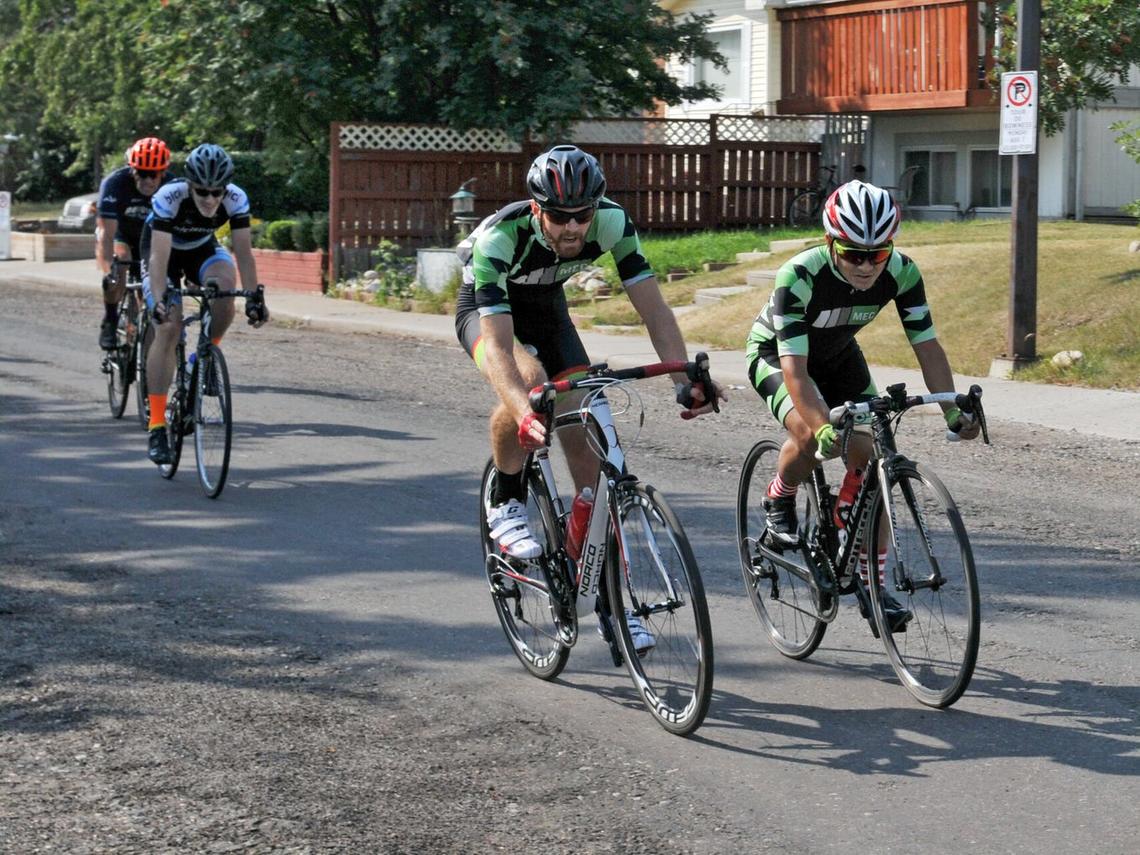
Nov. 23, 2021
Let’s Meet an UCalgary Political Science Alumni: John Santos (MA/18)!
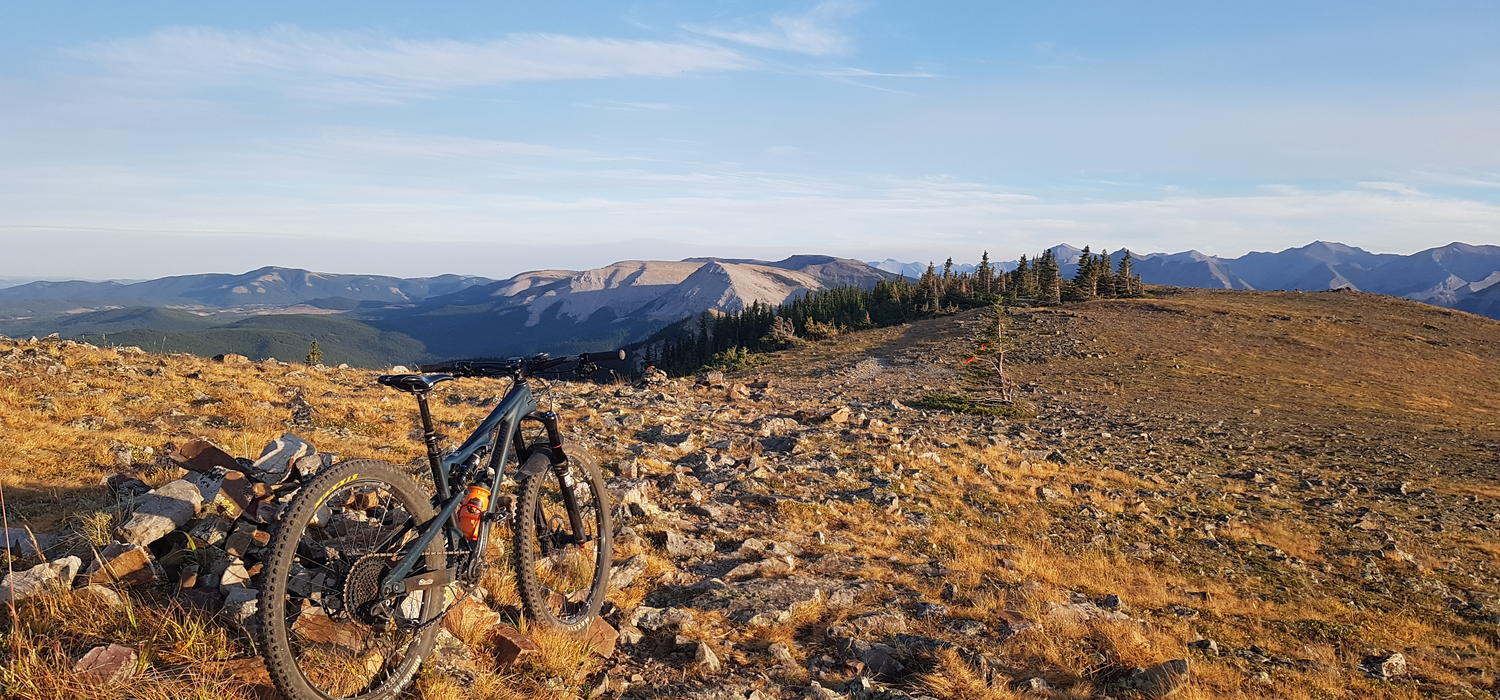
John Santos graduated with a MA from the Department of Political Science in 2018.
Can you tell us a little bit about yourself and what led you to pursue both your BA and MA in Political Science at the University of Calgary?
I grew up in Calgary and was always interested in politics, so it was a pragmatic choice to stay in Calgary and study political science. At the time, I was interested in partisan activism and I had this grand plan to go to law school, practice for a bit while continuing to be an activist and then either run for office or become a professional political operative.
What changed things was taking classes in quantitative research methods and political behaviour. That’s when I discovered I was more interested in understanding how and why things happen in the political world rather than being someone who made them happen. After my undergrad, I did a two-year stint working at the Alberta Legislature for the Alberta Liberal Caucus and quickly realized the political operative (and partisan) life wasn’t for me. So, I phoned up a pollster I met during my time in politics, Janet Brown and ended up working with her for seven years.

With Janet, I got the opportunity to work on all kinds of different projects—political and non-political, quantitative/survey-based and qualitative (interviews and focus groups). It was a great experience, and Janet is one of the best in the business. I got to work on high-profile projects like Alberta provincial election polls and an on-going large-scale research project for CBC that is more comprehensive than regular polls and closer to what you would find in an academic-led survey project (Dr. Melanee Thomas is one of the academic advisors on the CBC project!). This led me to do some “public intellectual” type work as a political commentator, invited speaker, and contributing writer in the mainstream media.
But, professional research and academic research are different worlds. Even though I had the chance to work on projects that are beyond the day-to-day work of most polling firms, the constraints of the private sector meant I could never pursue my ideas as far as I wanted to. Developing ideas costs money (unlike applying ideas, which makes money).
Luckily for me, I met Dr. Thomas a Prairie Political Science Association conference where Janet and I were presenting some research we did with Dr. Duane Bratt at Mount Royal University on predicting election outcome by counting election signs. I found out she was doing the kind of research I wanted to do, so I signed up for the MA program and she became my thesis supervisor. That’s how, at the age of 30 and after already having two careers, I ended up returning to UCalgary to get my MA.
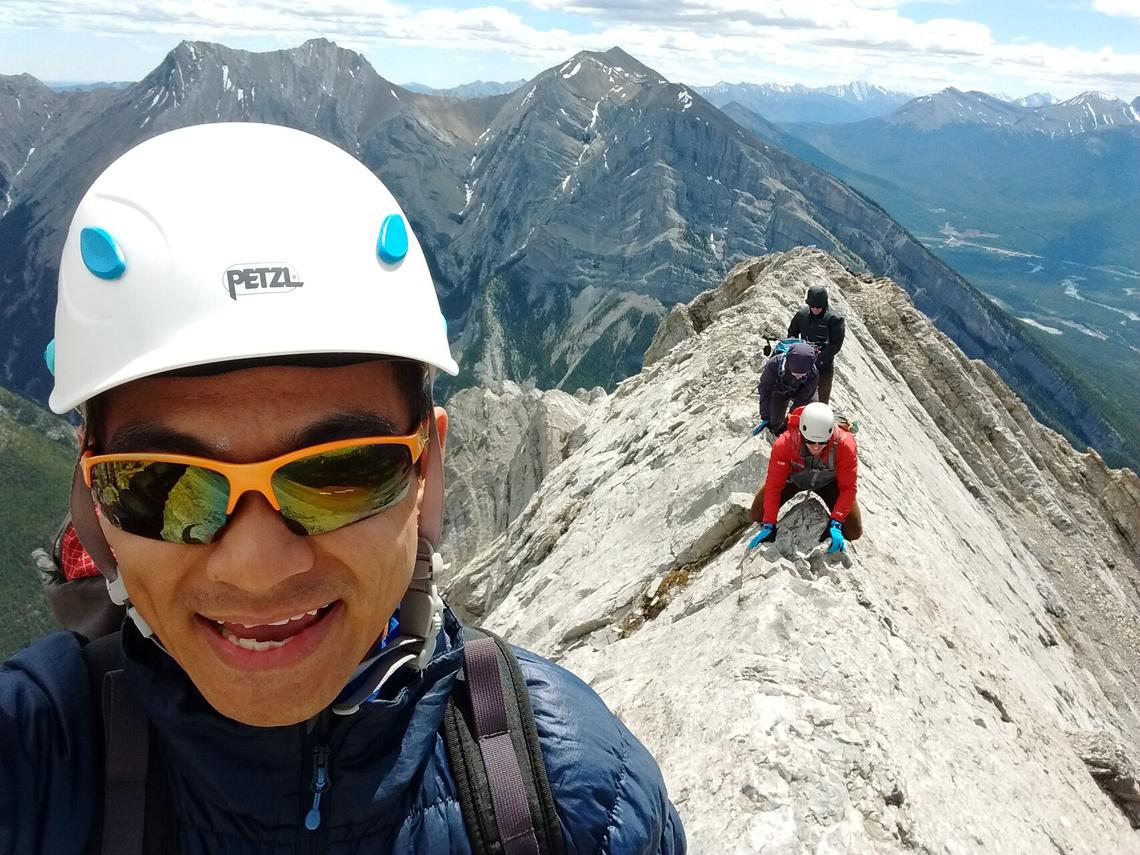
Mt. Lady MacDonald with alumni of UCalgary MA program: Jessica Weber, Andrew Klain, and Lucas Czarnecki
Where has your graduate degree taken you now?
The idea of becoming a professor was always in the back of my mind as I went through the MA program, but I didn’t want to rush into a decision. After all, I was already ostensibly “behind” in terms of career development, so what’s another year of “delay?” I had also gotten married and burned through my savings during my MA, and I was pretty tired due to the ambitious research project I decided to take on for my thesis. So, it made sense on several levels to go back to the private sector.
Armed with new skills, I was able to conduct more complex statistical analyses for our clients, and I started giving presentations and commenting on more technical aspects of research design, data collection, and analysis. It still wasn’t enough for me. After only a few months, I heard the ivory tower calling again. I suspected this would happen, so I kept a foot in the academic world by collaborating on some projects and going to academic conferences. With the help of professors in our department, I met professors from other political science departments across the country. That’s how, at the age of 34 and after already making three academic-professional transitions, I ended up going to UWO to get my PhD.
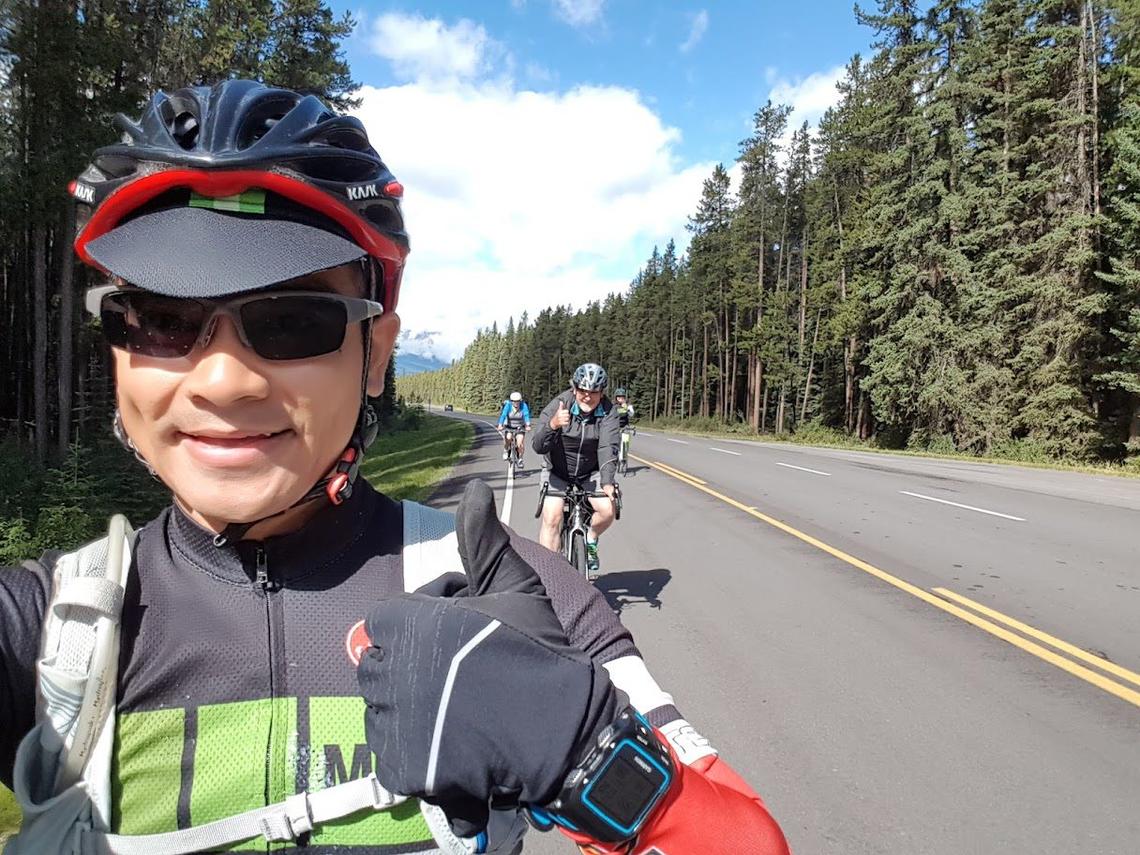
Do you have any words of advice for current political science undergraduate students who are interested in pursuing an MA in the field?
By historical standards, the path I have been traveling is unconventional, but it’s becoming more commonplace. The “traditional” life cycle path is to go straight through the education phase and then switch to a “career phase” unless you’re one of the lucky few who becomes a professor and never makes it out of the academy. I’m a bit different in that I’ve alternated between the professional and academic worlds.
(My penchant for the unconventional actually started in undergrad, which technically took me six years to complete. I avoided taking a full course load to free up time for political activism extra-curricular activities like student government, model UN, and debate.)
My path isn’t the right one for everyone, and I’d be remiss if I didn’t admit that privilege has been part of the fuel that has gotten me this far. I paid for my own education, but I was able to live with my parents rent-free during undergrad without any pressure of graduating within four years and finding work immediately after. Now, I am married and have a spouse who not only supports my career choice, but also has a working situation that is location-invariant.
That said, I think having professional and life experience before returning to school meant that I was better prepared for the “non-learning aspects” of academic life like project management, balancing multiple priorities at once, dealing with workplace interpersonal issues, doing stuff you don’t want to do but have to do, being self-motivating and self-directing, etc.
Anecdotally, it seems graduate students can generally get through coursework just fine because courses provide a linear structure for completion (institutions work! ...sometimes). The thesis phase is more difficult because (like political development) there is no universal trajectory, no one-size-fits-all approach.
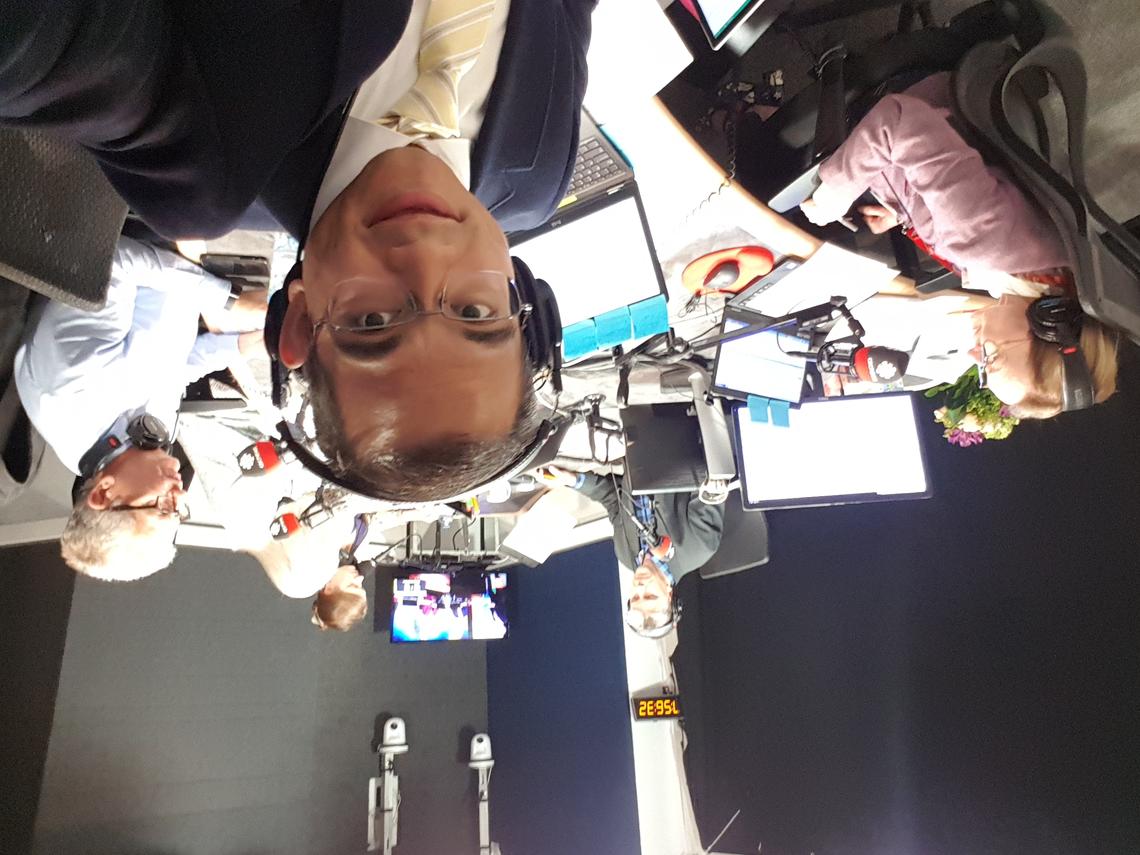
Most people think the main problem is an inability to be self-motivated and self-directed (i.e. procrastination, indecision, laziness, or a half-hearted commitment to the project). But lack of experience can also cause well-intentioned but naïve, unrestrained, and ultimately counterproductive levels of ambition. No amount of motivation or workahol will be able to overcome a project that is unbounded or continually shifting. One of the biggest lessons I’ve learned in the professional world (where there are often strict constraints of time and cost) is that human agency is bounded, and we cannot accomplish everything. “Good” might be the enemy of “great,” but “perfect” is the enemy of “done.” While one might prefer perfect > great > good > done > not done, working to a higher but more difficult-to-attain preference (perfect, great, good) in a way that impedes the achievement of the base objective (done) could actually lead to the “worst” outcome (not done). [You might recognize this is as the theory of “satisficing” from Simon 1956].
Work experience also provides one with the opportunity to achieve things outside of the academy. Another problem with graduate students (arguably, academics more broadly) is so much of their identity is wrapped up in what they do. The thesis becomes who they are, which creates too pressure. Psychological research suggests there is an optimal level of stress, and the pressures of “getting the thesis right” can put some students at supra-optimal levels. Having the chance to “be someone outside the university” lowers the stakes, which can help ambitious individuals who come into the academy with something to prove, even if its just to themselves.
I’ll conclude by addressing the concept of “lost time.” This calculation matters more at the PhD level, but it can make a difference at the MA level, both in terms of doing one and in working in-between the BA and MA. First, if one has the desire and means to, I encourage them to do an MA. Unlike a PhD, which usually brings negative financial returns, an MA often delivers an earnings bump (even if it’s not realized immediately) and the opportunity cost of two years away from the workforce is not only less than four years, but comes at a lower per-year cost than a PhD, since it happens earlier in the career cycle.
As for taking time to work, the trend is that more MA students are taking more than two years to finish than in the past. If taking a year off puts one in a better position to finish on time, with less stress, and with a better thesis project, then that time in the workforce is actually an investment that will have paid a dividend. For myself, I don’t think I would have finished on time if I did not have the experiences I had going into the MA.
Thanks John Santos for sharing with us!
You can follow John Santos on Twitter @jbsno1
